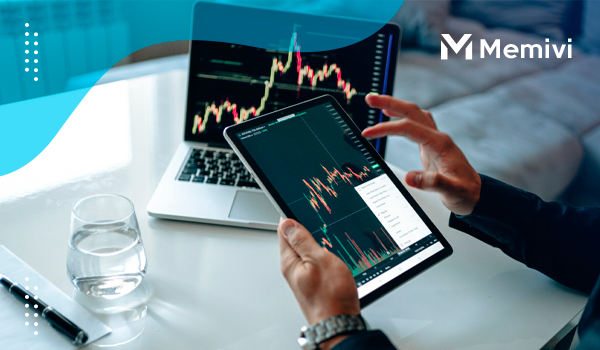
Index futures are a type of financial derivative that can be quite intimidating to understand. As an investment tool, index futures can provide significant benefits by allowing investors to hedge against market volatility and speculate on future market movements. However, these benefits can only be realized by understanding how index futures work and how to use them correctly.
In this blog post, we will explain the ins and outs of index futures, including how they work, their benefits, and some common strategies used by investors. By the end of this post, you will have a comprehensive understanding of index futures and be able to use them to your advantage in the financial markets.
Introduction to Index Futures
Index futures are financial derivatives that allow investors to speculate on the future direction of a particular stock market index. These futures contracts are traded on a designated exchange and serve as a tool for managing risk or seeking profit in the volatile world of financial markets.
To understand index futures, it’s important to grasp the concept of an index itself. An index is essentially a benchmark that represents a specific segment of the stock market. It is constructed by aggregating the prices of a selected group of stocks that meet certain criteria, such as market capitalization or sector classification.
Examples of well-known stock market indices include the S&P 500, Dow Jones Industrial Average, and Nasdaq Composite. Index futures, on the other hand, allow traders and investors to take a position on the future value of an index.
Unlike stocks, which represent ownership in individual companies, index futures offer exposure to the overall performance of the market. This makes them an attractive avenue for those who wish to capitalize on broader market trends rather than focusing on specific stocks.
One key feature of index futures is leverage. Traders can gain exposure to a large portion of the market with a relatively small initial investment, as only a fraction of the contract’s total value needs to be deposited as margin. This amplifies both potential profits and losses, making proper risk management crucial in futures trading.
Understanding Future Contracts
Understanding futures contracts is crucial for anyone looking to delve into the world of index futures. A futures contract is a financial derivative that allows traders to speculate on the future price movement of an underlying asset, such as an index. It is a legally binding agreement between two parties, the buyer and the seller, to buy or sell the asset at a predetermined price and date in the future.
One key aspect of futures contracts is the concept of leverage. Unlike traditional stock trading, where you need to pay the full price of the asset upfront, futures contracts require traders to only put down a fraction of the contract’s value, known as the margin. This allows traders to control a larger position with a smaller amount of capital, amplifying both potential profits and losses.
Furthermore, futures contracts have an expiration date, after which they cease to exist. The expiration date is typically standardized and occurs on specific dates throughout the year. Traders have the option to either close out their position before the expiration date or let the contract settle, resulting in the physical delivery of the underlying asset or a cash settlement.
It’s important to note that futures trading involves both risk and potential rewards. The price of the underlying asset can fluctuate unpredictably, and traders must carefully monitor market conditions and employ risk management strategies to protect their investments.
Key Benefits of Trading Index Futures
Trading index futures can offer several key benefits for investors looking to diversify their portfolio and potentially maximize their returns. Understanding these benefits is crucial for anyone considering venturing into the world of index futures trading.
- Diversification: One of the primary advantages of trading index futures is the ability to diversify your investment portfolio. Index futures allow you to gain exposure to a broad market index, such as the S&P 500 or the Dow Jones Industrial Average, without having to individually buy and manage multiple stocks. This diversification can help spread the risk and reduce the impact of individual stock price fluctuations, providing a more balanced investment approach.
- Leverage: Another significant benefit of trading index futures is the potential for leveraging your trading capital. With futures contracts, you are only required to put up a fraction of the contract value as margin, allowing you to control a much larger position with a smaller initial investment. This leverage can amplify your potential profits, but it’s important to note that it can also magnify your losses. Proper risk management is crucial when utilizing leverage in futures trading.
- Liquidity: Index futures are highly liquid instruments, meaning there is a large volume of contracts being traded and readily available buyers and sellers in the market. This liquidity ensures that you can enter and exit positions quickly and at competitive prices. High liquidity also reduces the risk of slippage, where the execution price deviates significantly from the desired price due to a lack of market depth.
- Hedging and Risk Management: Index futures can serve as effective tools for hedging and managing risk in your investment portfolio. By taking positions in futures contracts that are inversely correlated to your existing holdings, you can offset potential losses in your portfolio during market downturns. This hedging strategy can provide a level of protection and stability to your overall investment performance.
- Transparency and Price Discovery: Index futures are traded on regulated exchanges, providing transparency and efficient price discovery. The prices of futures contracts are determined by market forces of supply and demand, ensuring fair and competitive pricing. This transparency allows traders to make informed decisions based on real-time market information and eliminates the potential for market manipulation.
Understanding the key benefits of trading index futures can empower investors to make informed decisions and effectively utilize these financial instruments to achieve their investment objectives. However, it is essential to conduct thorough research, seek professional advice, and develop a solid trading plan before entering the world of index futures trading.
How index futures differ from stock trading?

Understanding the key differences between index futures and stock trading is essential for anyone looking to venture into the world of financial markets. While both involve trading in securities, they operate on different principles and carry unique characteristics.
Firstly, stock trading involves buying and selling shares of individual companies. Traders analyze the company’s performance, financials, and market conditions to make informed decisions. On the other hand, index futures are financial contracts that derive their value from an underlying index, such as the S&P 500 or the Dow Jones Industrial Average. Instead of trading individual stocks, investors trade contracts based on the performance of the entire index.
One significant distinction between the two is the level of diversification. Stock trading allows investors to focus on specific companies or sectors, providing more targeted exposure to particular industries. In contrast, index futures provide broader market exposure, allowing traders to speculate on the overall performance of the market or a specific sector represented by the index.
Another difference lies in the leverage and margin requirements. Stock trading typically requires the full value of the shares to be paid up front. In contrast, index futures trading allows traders to participate in the market with a fraction of the contract’s total value, known as margin. This leverage magnifies potential gains or losses, making index futures a more capital-efficient option for traders seeking exposure to broader market movements.
Furthermore, index futures offer the advantage of being traded on organized exchanges, ensuring liquidity and transparency. Stocks, on the other hand, may trade on various exchanges and can experience variations in liquidity and price discrepancy between different platforms.
Final Thoughts
Remember, continuous learning is key to mastering index futures trading. Take advantage of these resources, but always approach them with a critical mindset, verifying information from multiple sources, and adapting strategies to suit your individual trading style and risk tolerance.



 Why Investors Should Approach a Strong Economy with Caution? <p class='sec-title' style='line-height: normal; font-weight: normal;font-size: 16px !important; text-align: left;margin-top: 8px;margin-bottom: 0px !important;'> In the world of investing, a strong economy is often viewed as a signal to buy and invest heavily. However, this approach can sometimes be a mistake. </p>
Why Investors Should Approach a Strong Economy with Caution? <p class='sec-title' style='line-height: normal; font-weight: normal;font-size: 16px !important; text-align: left;margin-top: 8px;margin-bottom: 0px !important;'> In the world of investing, a strong economy is often viewed as a signal to buy and invest heavily. However, this approach can sometimes be a mistake. </p>  RBI Continues With A Pause On Rate Hikes Amid Focus On Curbing Inflation <p class='sec-title' style='line-height: normal; font-weight: normal;font-size: 16px !important; text-align: left;margin-top: 8px;margin-bottom: 0px !important;'> Staying the Course: RBI Holds Rates Steady in Efforts to Tackle Inflation. Get the Inside Scoop on India's Monetary Policy. </p>
RBI Continues With A Pause On Rate Hikes Amid Focus On Curbing Inflation <p class='sec-title' style='line-height: normal; font-weight: normal;font-size: 16px !important; text-align: left;margin-top: 8px;margin-bottom: 0px !important;'> Staying the Course: RBI Holds Rates Steady in Efforts to Tackle Inflation. Get the Inside Scoop on India's Monetary Policy. </p>  The Future is Now: A Guide on How to Invest in AI <p class='sec-title' style='line-height: normal; font-weight: normal;font-size: 16px !important; text-align: left;margin-top: 8px;margin-bottom: 0px !important;'> Your Trusted Source for AI Investment Guidance: Let's Navigate the Future Together. Explore AI Opportunities Today </p>
The Future is Now: A Guide on How to Invest in AI <p class='sec-title' style='line-height: normal; font-weight: normal;font-size: 16px !important; text-align: left;margin-top: 8px;margin-bottom: 0px !important;'> Your Trusted Source for AI Investment Guidance: Let's Navigate the Future Together. Explore AI Opportunities Today </p>